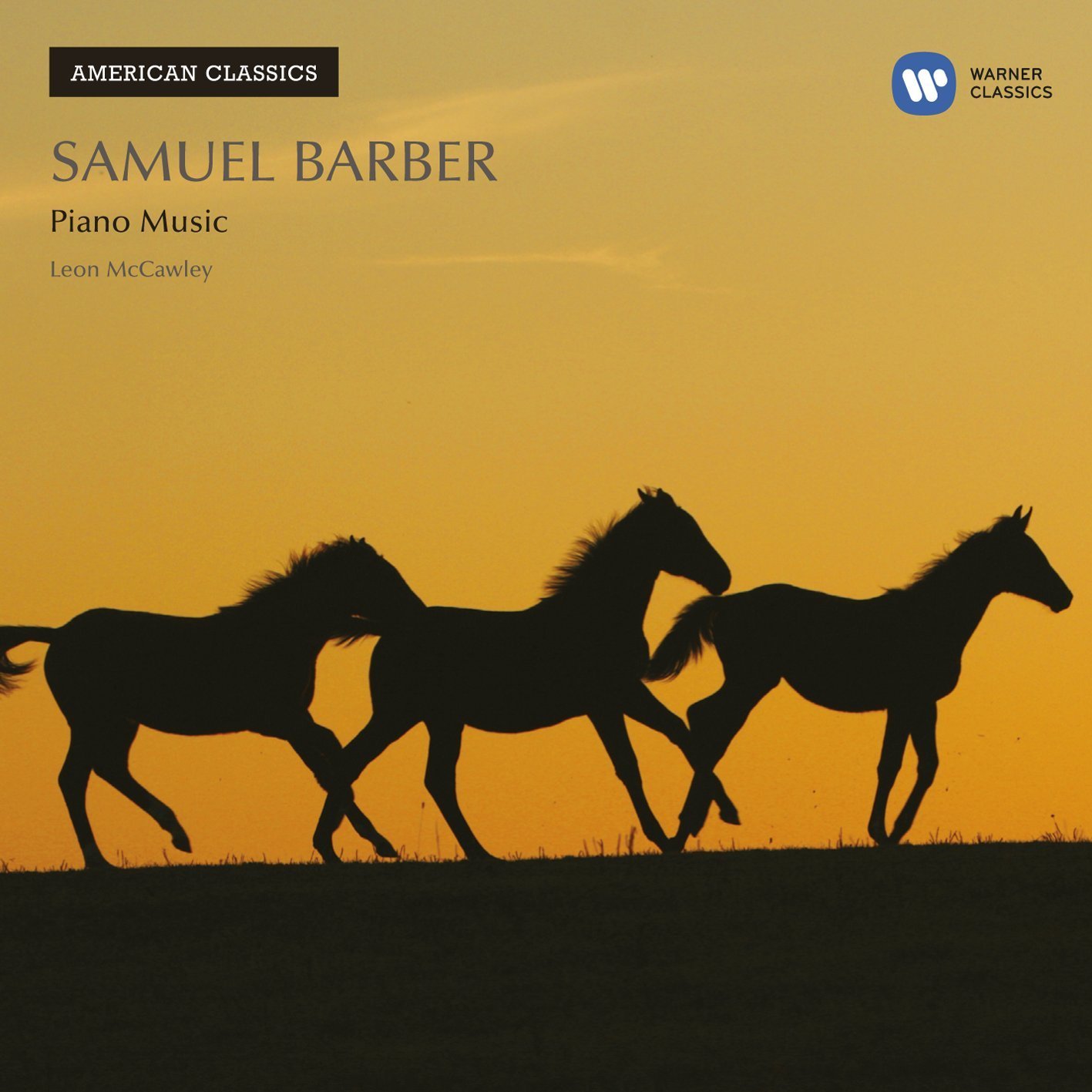EMI Classics 9489552
Penguin Guide to Compact Discs 1997-1998
This CD accommodates Barber’s entire output for the piano- including the Souvenirs, which date from 1952 and which exist both as an orchestral (ballet) score and in alternative piano versions for two and four hands. Leon McCawley’s manages excellently with just two, even in the prodigiously difficult Sonata, written for Horowitz. McCawley’s account is highly convincing, breathtakingly so in the dazzling Scherzo and the formidable closing Fuga, while his freely spontaneous approach suits the opening movement especially well. The Souvenirs, too, are brilliantly played;…he makes a great deal of the Pas de deux. The posthumous Interlude is also well worth having; and this well-recorded survey displaces Angela Brownridge’s Hyperion disc, which omits the latter piece as well as Souvenirs.
– – –
Répertoire Magazine October 1997
The young British pianist Leon McCawley, facing this titanic work [Sonata op. 26] manages very well indeed, thanks to a subtle touch and a respect for the architecture of the piece. The other works presented on the disc may be less ambitious than the Sonata but are certainly full of interest and worth making a detour for. The Excursions, composed in 1944, hark back to the glorious days of Horowitz and take their inspiration from popular American Music. Barber only returned to the piano in 1977 after 25 years of absence to compose his Ballade Op. 46, rich in poetry and lyricism. A really enjoyable and useful disc to discover the other side of Barber, too often treated with condescension on this side of the Atlantic.
Thierry Clermont
– – –
American Record Guide October 1997
McCawley offers unforced, invigorating readings and is sensitive to this music’s varying moods and colours. The sonata tests a pianist’s mettle, and McCawley passes with flying colours. With superb sonics and imposing pianist, this new version can safely be added to any pianofile’s library.
– – –
BBC Music Magazine/ July 1997
Performance *****
Sound *****
Barber makes deeply expressive use of the piano’s enormous potential and McCawley matches this at every step. From the humorous, ironic and evocative sound-pictures of the early Excursions and Souvenirs to the rugged modernity of the Sonata, first performed by Horowitz, there is a wide range of nuance, the moods captured with great refinement, poetry and wit. McCawley proves himself a virtuoso as well, but without any pretensions – his formidable abilities always serve the music. Tone colour is rich and never harsh, lyricism is uppermost and a sense of the artist’s affection for the music shines through it all. …this is his debut disc and proves that he is a young man to watch out for. I look forward to hearing whatever he may do next.
Jessica Duchen
– – –
The Independent on Sunday/ 25th May 1997
The piano music isn’t well know here at all, but it’s engagingly attractive: an eclectic balance between European tradition and American vernacular, with a sense of classical lyricism that Leon McCawley handles perfectly. McCawley is the young Briton who won second prize at Leeds a few years ago and has been building a steady profile ever since. A secure, clear-headed technician and discerning judge of repertory, he’s just the sort of champion Barber needs. If Classic FM really wants to provide a service for its listeners, it should adopt this disc and stretch their ears.
Michael White
– – –
The Times 1st May 1997
Three years ago, Deutsche Grammophon’s cornucopia of songs by Samuel Barber reminded us that this was the composer of far more than a memorable Adagio for Strings. Now Leon McCawley, erstwhile BBC Young Musician and Leeds prizewinner, makes an enterprising debut with Virgin in a recital of Barber’s piano music stretching from his early Four Excursions into regional American idioms, to the late, spare Ballade, written four years before his death in 1981.The boogie-woogie, blues, folksong and hoedown of the Excursions are answered by Six Souvenirs of the days of the Grand Hotel and Palm Court, written in 1952 to express the “amused tenderness” he felt for the tango, gallops and waltzes of the tea dance. McCawley is as sensitive to their elusive moods as he is to the half-lights of the Chopin-like Nocturne and to Barber’s gentle flirtations with bitonality and serialism in the Sonata on 1949.
Hilary Finch
